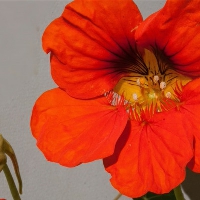Filling in the application form is a big problem for examinees after the college entrance examination. Some students do not know which school they can go to. To this end, I have sorted out the schools that can apply for the college entrance examination in Zhejiang with a score of about 560. I hope it will be helpful to you.
Zhejiang 560 points list of universities that can apply
Name of school Average admission score of school location Huaibei Normal University Anhui 563 Huainan Normal University Anhui 560 Fujian Normal University Fujian 565 Putian University Fujian 558 Xiamen University Jiageng College Fujian 561 Northwest Normal University Gansu 560 Lanzhou University of Finance and Economics Gansu 558 Guangdong Ocean University Guangdong 562 Guangzhou Maritime College Guangdong 561 Guangdong Institute of Petrochemical Technology Guangdong 562 Guangxi University of Science and Technology Guangxi 559 Guangxi Forest University of Technology Guangxi 560 Guangxi University for Nationalities Guangxi 565 Guangxi University of Finance and Economics Guangxi 565 Qinzhou University Guangxi 565 Guizhou Institute of Engineering Application Technology Guizhou 565 Shijiazhuang Institute of Economics Hebei 559 Hebei Institute of Architecture and Engineering Hebei 556 Hebei Normal University of Science and Technology Hebei 562 North China Institute of Science and Technology Hebei 562 North China Institute of Aerospace Technology Hebei 562 Disaster Prevention Technology College Hebei 556 Central Judicial Police College River North 555 Zhengzhou Institute of Light Industry Henan 563 Zhoukou Normal College Henan 562 Anyang Normal College Henan 556 Luoyang Normal College Henan 558 Shangqiu Normal College Henan 556 Zhengzhou Institute of Aviation Industry Management Henan 560 Henan Engineering College Henan 559 Nanyang Institute of Technology Henan 563 Heilongjiang University of Science and Technology Heilongjiang 555 Jiamusi University Heilongjiang 565 Note: Zhejiang implements the new college entrance examination. The total score of the college entrance examination is 750 points. The level of the admission score line varies from province to province. Candidates can choose universities and majors according to their provinces and their own conditions.
What are the skills for filling in the volunteer form
1. Take advantage of the opportunity of "lower grade admission" of some colleges and universities to achieve high grades with low scores
For various reasons, some of the first batch of enrollment colleges will set aside a small number of enrollment plans every year to enroll the second batch of candidates on the undergraduate score line. For example, in order to complete the enrollment plan for some relatively unpopular majors or majors with relatively difficult working conditions, we will adopt the method of reducing the enrollment. Another example is that some colleges and universities that enroll students in a batch may sometimes reduce their enrollment by one batch because they are not in the same city or even across provinces.
2. Cross Breakthrough
It means that liberal arts candidates apply for liberal arts majors in science and engineering colleges, and science candidates apply for science majors in literature and history colleges. In recent years, with the accelerated pace of discipline construction in colleges and universities, the original pure literature and history or science and engineering colleges are moving towards the direction of comprehensive colleges and universities. It is precisely because the newly opened non-traditional majors are not widely known or known but not recognized, so the number of candidates is relatively small, so that candidates can be admitted with lower scores.
3. Pay full attention to the specialty of both liberal arts and science
Because some arts and science majors are easy to be broken through by some less competitive candidates, filling in these majors can fulfill some candidates' college and professional dreams. The vast majority of majors under disciplines such as economics, management, literature, pedagogy and law can apply both arts and science.
4. Institutional difference
The score difference between colleges and universities is not fixed. The choice of middle and high score candidates is larger, and the choice of marginal candidates on the provincial control line is smaller. Generally speaking, the gradient is mainly restricted by the A-volunteer of the institution ranking first. If A-volunteer is an aggressive institution or major, the gradient between B, C, D (E, F) volunteers ranking next can be appropriately larger; If volunteer A is the ideal college or major to be guaranteed, the gradient between other colleges or majors should be smaller.

